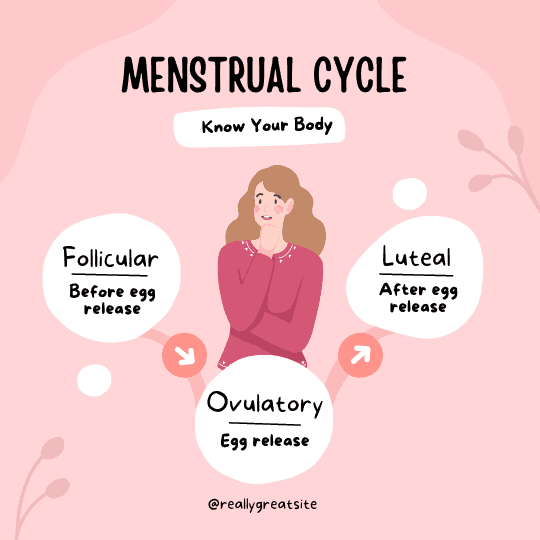The metabolic-endocrine condition polycystic ovarian syndrome (PCOS) is characterized by hyperandrogenism and ovulation. Although the cause of PCOS is uncertain, it has been linked to insulin resistance, changes in glycemic value, and unfavorable reproductive and cardiovascular outcomes.
Myo-inositol (MYO) is a predecessor for synthesizing phosphoinositides, which regulate various processes, including cell proliferation. In patients with PCOS, the modified metabolism of inositol-phosphate glycans plays a role in the development of insulin resistance. According to the existing evidence, treating women with PCOS with Myo-inositol and folic acid enhances metabolic and reproductive results.
MYO can be deemed an effective and safe medication for patients with PCOS who have insulin resistance and obesity, enhancing the quality and maturity of oocytes as well as pregnancy outcomes in this significant population of women, based on current understanding.
Introduction
- PCOS, which affects more than 7 percent of women of reproductive age, is the most prevalent cause of ovulation problems, hyperandrogenism, and infertility related to ovulatory dysfunction.
- In 80% of cases, PCOS is linked to obesity, and in 30–40% of cases, it is related to a metabolic syndrome with insulin resistance, which can aggravate PCOS.
Hyperglycemia reduces the hepatic formation of Sex Hormone Binding Globulin (SHBG), resulting in an increase in free androgens in the bloodstream. At the same time, insulin resistance enhances androgen production by the theca cells. Management of insulin resistance is thus critical in the therapy of PCOS, and it is based on dietary guidelines, physical exercise, and other molecules such as Myo-Inositol (MI).
Insulin-sensitizing drugs, such as metformin, are only prescribed in the case of glucose intolerance and diabetes type 2 Mellitus. The goal of this study was to look at the effects of Myo-inositol, a natural insulin sensitizer, on menstrual cycle problems, ovulation induction, and In Vitro fertilization (IVF) or intracytoplasmic sperm injection (ICSI) results in PCOS women.
MYO’s Function in PCOS
It was discovered in early research in diabetic women that irregularities in the control of inositol phosphate glycans in their function as dual messengers could cause changes in the insulin pathway. These early findings suggested that changes in inositol phosphoglycan metabolism in PCOS patients act as mediators for insulin resistance.
Compared to placebo, oral DCI supplementation improved ovulatory performance and decreased hyperandrogenemia, hypertriglyceridemia, and blood pressure in PCOS women.
The physiological significance of inositol products in gametogenesis and human reproduction has been reported in basic research and clinical trials, prompting more investigation into its potential use in assisted reproduction techniques.
- As previously stated, PCOS pathogenesis has been associated with an improvement in insulin resistance and hyperinsulinism, which leads to various changes in inositol signaling pathways that affect ovarian steroidogenesis.
- Both inositol derivatives are insulin-sensitizing drugs, and MYO has been found to have effects comparable to DCI in names of enhancing oocyte quality and regularizing menstrual cycles in women with PCOS, which may have positive reproductive effects via various mechanisms such as improved insulin sensitivity, increased ovulation, or reduced oxidative stress in follicular fluid.
- Concurrent therapy with Myo-inositol and combined oral contraceptives (COCs) has been demonstrated to improve clinical response as well as endocrine and metabolic markers in women with PCOS.
- In addition, administering MYO before hormonal stimulation boosts both oocyte and embryo quality, as well as the clinical pregnancy rate in PCOS women dealing with assisted fertilization procedures.
Menstrual Cycle Abnormalities and The Effects of MI
Early follicular growth is high in PCOS, but the transition to a prominent follicle is disrupted (follicular arrest). The overabundance of follicles and higher serum estradiol levels have been linked to intraovarian androgens. This enhanced androgen synthesis is a natural feature of thecal cells, but it is amplified by excess LH and hyperinsulinism. Metformin (MET) treatment improved insulin sensitivity and lowered testosterone levels in women with PCOS; however, the drug’s gastrointestinal adverse effects limit its use. The location of MI was investigated in this principle of PCOS.

As a result, MI is thought to re-establish ovulatory menstrual cycles (particularly in obese women with PCOS). Still, its impact on pregnancy rates is difficult to assess (distinct diagnoses, inadequate investigation capacity, and non-comparative studies). When ultrasonography is conducted, the second aberration is the delinquency to determine a prominent follicle, resulting in an accumulation of selectable strands and the usual appearance of polycystic (multi-follicular) ovaries. The follicular arrest is caused by a scarcity of FSH activity and early LH action.
MI’s Effect on IVF or ICSI
MI and DCI supplementation has been studied in women with PCOS who are enduring Assisted Reproductive Technologies (ART) to increase oocyte quality, embryo quality, and odds of pregnancy. Inconclusive data on MI efficacy was discovered in the last meta-analysis directed at women with PCOS who had ICSI. The excitement of polycystic ovaries to gonadotropins increases by MI, resulting in lower FSH dosages.
MI lowers estradiol levels on ovulation trigger day, decreases the number of intermediate-sized follicles, and expands the number of massive follicles (without improving the total quantity of oocytes recovered), lowering the risk of ovarian hyperstimulation. In women with PCOS, there is an improvement in oocyte quality and maturation, as well as an improvement in cleavage rate, embryo growth (enlarged blastocyst) and quality, and pregnancy rate.
MI given three months before the commencement of ovarian stimulation lowers the doses of FSH necessary for the follicular response and lowers the estradiol level on the day of ovulation triggering, reducing the threat of ovarian hyperstimulation and the number of cycles terminated. Meanwhile, the quality of oocytes and embryos is improving.
Conclusion
Myo-inositol medication, according to existing knowledge, improves many endocrine-metabolic abnormalities as well as some reproductive parameters linked with PCOS. MYO, a molecule derived from inositol, should be contemplated as a beneficial and cautious medication for overweight and non-obese women with PCOS. They have insulin resistance and hyperinsulinemia, with the goal of enhancing oocyte quality and maturation, reproductive projection, and other metabolic harms in this influential group of patients, according to the available evidence. Women with non-obese PCOS and hyperinsulinemia happen to be an appealing category of patients for therapy with inositol isomers like MYO.
PCOS is a common hormonal condition in women. Women with PCOS face difficulties getting pregnant and are at high risk of developing complications during pregnancy. However, by managing symptoms and taking all the necessary precautions, women having PCOS can give birth to a healthy baby naturally.
If you are looking for the best gynecologist in Chandigarh, we can help you. Now Make your dreams of parenthood come true, with Vivant clinic. We provide you with the right gynecologist services in Chandigarh, Zirakpur, Panchkula, and Mohali. So, get the best gynecologist services today in Chandigarh.
Contact us now – 7508909912

